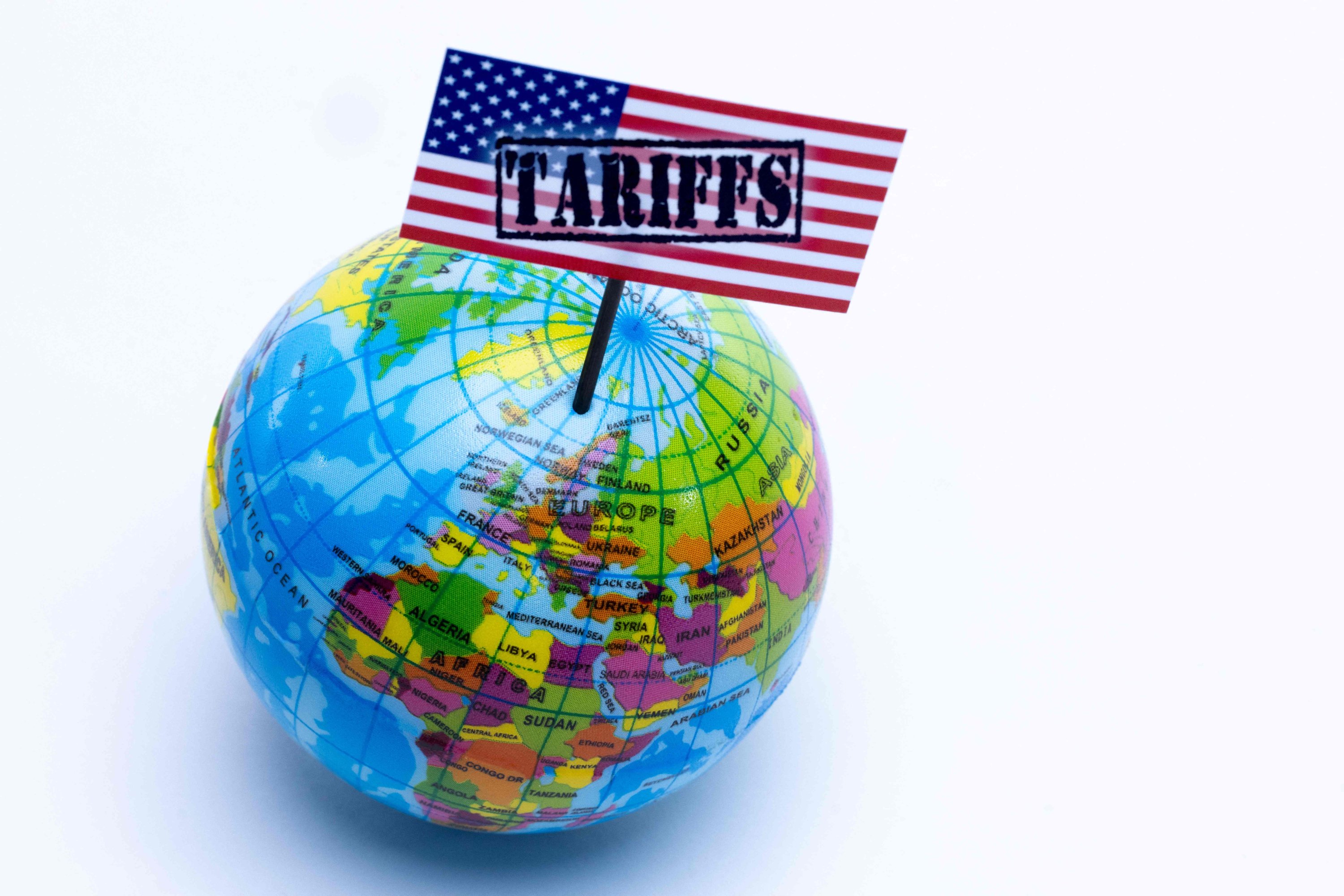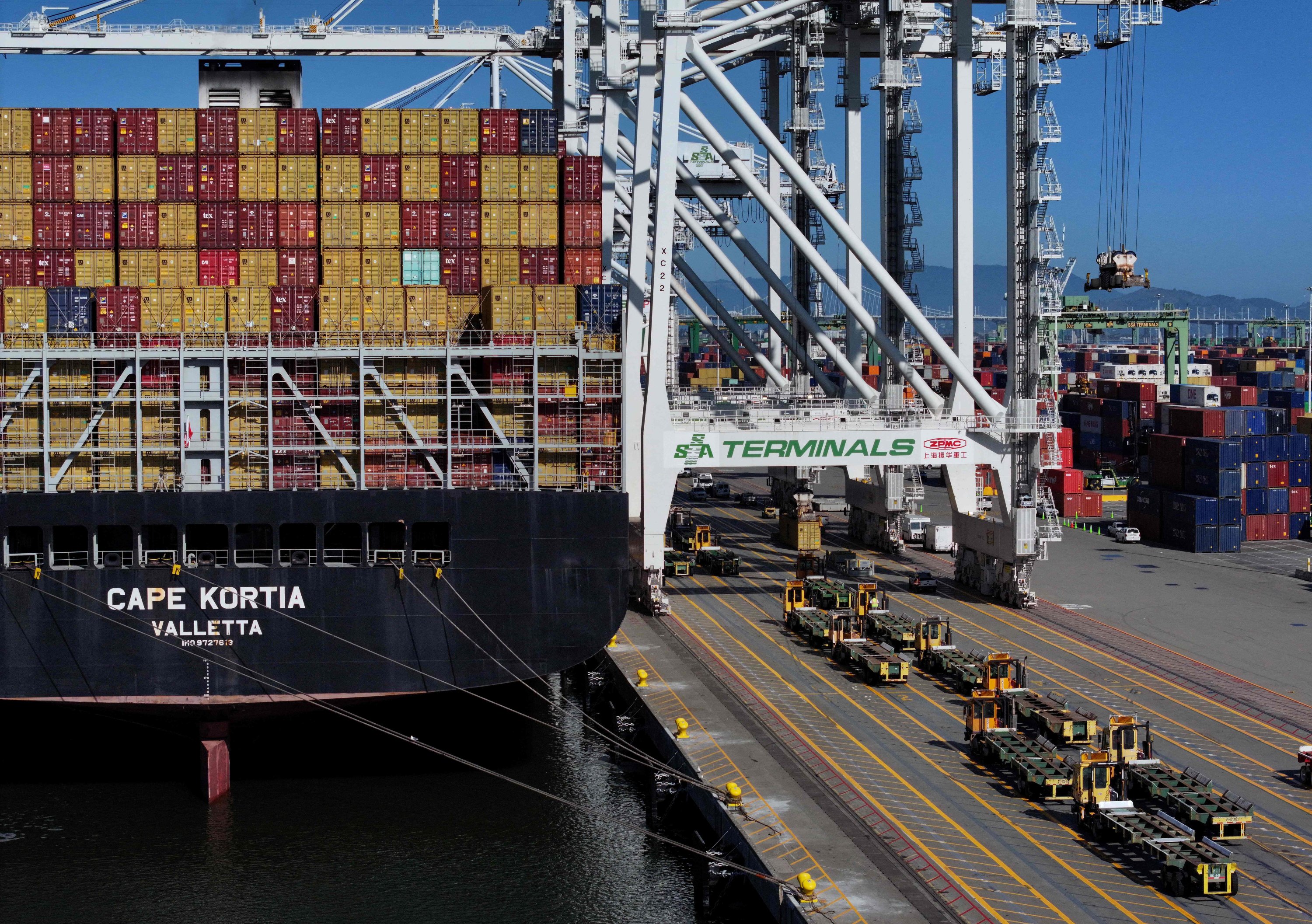© Turkuvaz Haberleşme ve Yayıncılık 2025
The recent trade deal between the United States and Britain, and the decision to de-escalate tensions with China, brought some positivity after turbulence for world markets related to tariffs imposed by President Donald Trump since the start of his second term.
The see-saw tariffs brought in unpredictability, raising government yields and sparking a sell-off, while many nations are reportedly in talks with the U.S. to reach deals specific to the country. Despite a sense of calm in the past two weeks, on Friday, Trump raised concerns over the way he is dealing with the European Union, which he threatened with a 50% tariff as of next month.
However, EU trade chief Maros Sefcovic said the European Commission, the EU's executive arm, was fully committed to securing a deal that worked for both sides, following a Friday phone call with U.S. counterpart Jamieson Greer and U.S. Commerce Secretary Howard Lutnick. He added that EU-U.S. trade "must be guided by mutual respect, not threats."

While economists warn of adverse impacts for global trade in the case of a broader U.S.-EU trade war, which would impact products including cars and pharmaceuticals, some still consider that more trade deals are likely in the upcoming period.
Trump signed an executive order in early April that imposed reciprocal tariffs on nations worldwide, stating that all countries will be subject to a minimum baseline tariff of 10%, with some, such as Canada, Mexico, China and EU states, paying higher rates.
As a first deal since the escalation, Washington and London touted their "special relation," and then the U.S. and China also held talks in Switzerland.
A landmark U.S.-U.K. trade agreement will significantly expand U.S. market access to the U.K., unlocking a $5 billion opportunity for American farmers, ranchers and producers, according to the White House.
The deal includes more than $700 million in ethanol exports and $250 million in agricultural products, and strengthens U.S. competitiveness by closing loopholes in the U.K.’s procurement market, streamlining customs procedures for U.S. exports and establishing high-standard commitments on intellectual property, labor and environmental protections, it said previously.
A reciprocal 10% tariff rate, announced on Liberation Day, or April 2, is now in effect. Under the U.K. deal, the first 100,000 vehicles imported annually into the U.S. will face a 10% tariff, with additional vehicles subject to 25%.
Following the deal, the U.S. also reached a deal with another global giant, China, to suspend tariffs for 90 days.
The U.S. will reduce tariffs on Chinese products from 145% to 30%, while China's will be reduced from 125% to 10% by May 14.
The landmark framework tax agreement with the U.K., with details yet to be worked out, is a shrewd start to the tariff redesign policy for the U.S., according to a professor of economic history at the University of Missouri.
The U.K. left the EU in "Brexit" with the idea that it would enact free trade agreements (FTA) with other countries and in particular the U.S., Max Gillman told Anadolu Agency (AA).
"This would free up their trade relative to the restrictive tariffs and non-tariff barriers to imports trying to enter the EU market," he said.
"By starting the tariff realignment policy ... the U.K. benefits enormously by finally enacting an agreement with the U.S., after the promises of Brexit."
"The U.S. likewise benefits by showing markets that the tariff renegotiation strategy was moving forward; this promises to set up future tariff agreements," he said.
Gillman said there will probably be new trade agreements to be negotiated by the U.S., focused first on friendly nations and allies, as they are the easiest to negotiate in the shortest time, as evidenced by the U.K. deal.
"For example, Canada and Mexico must be under full negotiation at this point, as evidenced by Prime Minister (Mark) Carney's trip to the U.S. so soon after his election in Canada," he stressed.

Mexico may be harder to negotiate because of the iron hold of drug cartels on so much of its economy, he said, adding that the U.S. will want to combine Canada and Mexico, given current trade agreements among the three countries.
After that, it is clear that the U.S. would like to negotiate a treaty with the EU, he said. "This is difficult because of their many non-trade barriers that closely protect their markets, such as agriculture, even as this is in violation of the WTO (World Trade Organization) agreement," he said.
He said Asian countries will also be on the list, with Japan and South Korea first, as they are close allies.
Indeed, Japanese Prime Minister Shigeru Ishiba on Sunday said Tokyo aims to advance tariff talks with the United States, with the goal of achieving an outcome during the Group of Seven summit next month.
Japan's top tariff negotiator Ryosei Akazawa held a third round of Japan-U.S. talks in Washington on Friday.
Speaking to reporters in Kyoto, Ishiba said there has been progress in negotiations, pointing to discussions on trade expansion, non-tariff measures and economic security.
"We will continue to further refine our discussions with the G-7 summit in mind," he said.
Charles Calomiris, an economist at Columbia Business School, said the current tariff policy will cause inflation during the next year of greater than 5%, and a reduction of gross domestic product (GDP) of more than 2%.
"Of course, that could be offset to some degree by the positive effects of his other policies, but it is more likely than not that the U.S. will soon experience a recession," he asserted.
Calomiris said it is, of course, possible that Trump will retreat from the tariffs once the adverse consequences are visible to him.
"If he does not do so, his party likely will lose control of the House in 2026," he added. "And because neither he nor the Democrats or the Republicans in Congress are willing to address the U.S. fiscal time bomb, which will blow up in three to five years, things are likely to get worse for the U.S. economy in the medium term."
Gillman stressed the fact that simultaneous negotiations are beginning with China bode well for the world economy, even if it is focused on fentanyl.
"It appears clear that this pretext is being used, of course in a serious way, to begin the full renegotiation with China for its years of state subsidies to firms mainly through its State-Owned Enterprises (SOE) that make up more than half of the economy," he noted.
Gilman noted that the WTO prohibits subsidies from the government to private firms; adding that it was the basis of the famous case brought to the organization between Airbus and Boeing, the degree or existence of government subsidies.
In addition, China continues to appropriate intellectual property rights through its longstanding prohibition of majority ownership by foreign firms of Chinese-based companies, which was relaxed only recently, Gillman asserted.
"Its recent relaxation means that many of these companies remain as majority Chinese-owned companies, so that the appropriation of intellectual property continues to this day," he added.
"Tension with the Chinese negotiation is ripe because of the Chinese military aggression in the Taiwan area and the Philippines, its military assistance to Russia, and its transfer of military technology to Iran," Gillman told AA.
The Chinese economy will collapse if cut off from U.S. trade, he said. "This makes it a war-footing move by the U.S. to raise tariffs so high for China.
"In a sense, it recognizes that military confrontation already exists between the U.S. and China, and the tariff policy is a strategic way to disable China from funding the military with high economic growth as in the past," he added.
